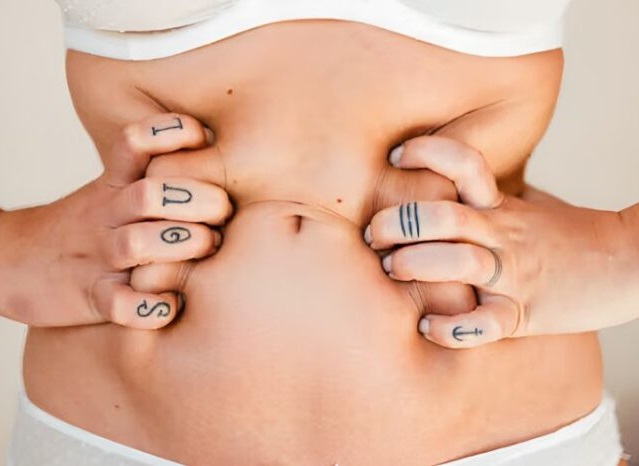A tummy tuck is a life-changing cosmetic procedure designed to create a flatter, more toned abdominal area. Whether you’re undergoing surgery to remove excess skin after weight loss, post-pregnancy changes, or simply to enhance your body contour, preparation is key to achieving the best results. Along with following your surgeon’s medical advice, paying attention to what you eat and the supplements you take before your surgery can make a huge difference in your recovery and outcome. If you’re preparing for a Tummy Tuck in Islamabad, knowing which foods and supplements to avoid beforehand is essential to minimize risks and ensure a smooth healing process.
Why Pre-Surgery Diet Matters
Your body needs to be in its best condition before any surgical procedure. What you consume directly affects your immune system, blood clotting ability, and tissue healing. Certain foods and supplements can increase bleeding risks, interfere with anesthesia, or cause inflammation, which may lead to complications during and after surgery. By avoiding these dietary triggers, you give yourself the best chance for a safe procedure and quicker recovery.
Foods to Avoid Before a Tummy Tuck
1. High-Sodium Foods
Excessive salt intake can cause water retention, bloating, and high blood pressure, which are not ideal before surgery. Swelling from sodium-rich foods can also make post-surgical inflammation worse.
Examples to avoid:
- Packaged snacks like chips and pretzels
- Instant noodles and canned soups
- Processed meats like sausages and salami
2. Sugary Foods and Drinks
Sugar causes inflammation and weakens your immune system, slowing the healing process. High blood sugar levels can also increase the risk of infection after surgery.
Examples to avoid:
- Soft drinks and packaged juices
- Candies, chocolates, and pastries
- Sugary breakfast cereals
3. Fried and Fatty Foods
Greasy, fried foods can slow digestion and may cause nausea after anesthesia. They can also promote inflammation, delaying recovery.
Examples to avoid:
- Deep-fried fast food
- Heavy cream-based dishes
- Cheese-loaded processed meals
4. Alcohol
Alcohol thins the blood, increasing bleeding risks during surgery. It can also interfere with anesthesia and lead to dehydration, slowing down the healing process. Surgeons typically recommend avoiding alcohol for at least two weeks before and after surgery.
5. Processed and Refined Foods
Refined carbohydrates and processed foods cause blood sugar spikes and increase inflammation. These foods also provide little nutritional value, making them a poor choice when your body needs nutrient-dense options before surgery.
Supplements to Avoid Before a Tummy Tuck
Many people think supplements are harmless, but some can be risky before surgery. Some herbs and vitamins affect blood clotting, interact with anesthesia, or increase swelling. Always inform your surgeon about every supplement you take.
1. Vitamin E
While vitamin E is great for skin health, in supplement form, it can thin the blood and increase the risk of excessive bleeding. Most surgeons recommend stopping vitamin E supplements at least two weeks before surgery.
2. Fish Oil and Omega-3 Supplements
Although omega-3 fatty acids are heart-healthy, they can act as blood thinners. This increases the risk of bleeding during and after surgery.
3. Herbal Supplements
Many herbal remedies can cause surgical complications, even if they seem natural and harmless. Examples include:
- Ginkgo Biloba: Can increase bleeding risk
- Garlic supplements: Can thin the blood
- Ginseng: May cause unstable blood pressure
- St. John’s Wort: Can interfere with anesthesia effects
4. High-Dose Vitamin C
Small doses of vitamin C are fine, but excessive amounts can increase the risk of kidney stones or interact with certain medications used during surgery.
5. Weight Loss Supplements
These often contain stimulants like caffeine or other ingredients that can interfere with anesthesia and affect heart rate. They should be stopped at least two weeks before the procedure.
How Long Before Surgery Should You Avoid These?
Most surgeons recommend eliminating these risky foods and supplements at least two weeks before your tummy tuck. However, if you consume any of these regularly, it’s better to discuss with your surgeon as early as possible so they can guide you on the safest time to stop.
What to Eat Instead Before a Tummy Tuck
While avoiding certain foods is important, focusing on what you should eat is equally crucial for optimal healing.
- Lean proteins: Chicken, turkey, eggs, tofu, and fish (without supplements) help repair tissues.
- Fresh fruits and vegetables: Provide antioxidants, vitamins, and minerals that strengthen your immune system.
- Whole grains: Brown rice, quinoa, and oats give you sustained energy for recovery.
- Healthy fats: Avocado, olive oil, and nuts (in moderation) reduce inflammation without increasing bleeding risk.
- Plenty of water: Staying hydrated supports better circulation and healing.
Tips for a Safe and Smooth Pre-Surgery Diet Transition
- Start early: Give your body enough time to adjust to the dietary changes.
- Read labels: Many packaged foods contain hidden sodium, sugar, or herbal extracts.
- Keep your surgeon informed: Always tell your doctor about everything you’re eating or taking.
- Avoid crash diets: Your body needs energy and nutrients to recover well.
- Plan meals: Preparing a pre-surgery diet plan helps you stay on track.
Final Thoughts
Preparing for a tummy tuck is more than just scheduling your surgery date. The foods and supplements you avoid before the procedure can significantly influence your recovery speed, comfort, and final results. By cutting out blood-thinning supplements, processed foods, and inflammatory ingredients in the weeks before your operation, you give your body the best chance to heal quickly and beautifully. If you are considering a Tummy Tuck in Islamabad, make sure you also choose a trusted clinic that guides you through every stage of the process. For expert advice, personalized care, and outstanding surgical outcomes, SKN Cosmetic Clinic is a leading choice in the city, ensuring that your transformation is as safe and successful as possible.





Comments